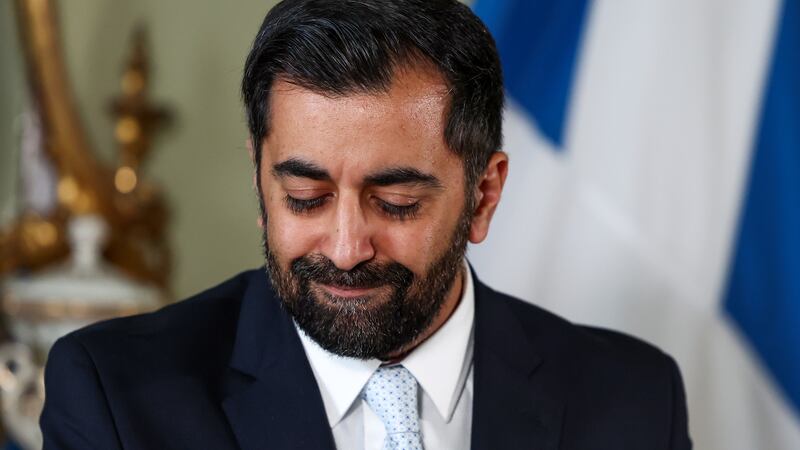THE British government has no legal power to use the royal prerogative to trigger Britain's exit from the European Union, the Supreme Court has been told.
Lord Pannick QC, representing the claimant who won a historic High Court ruling in November, made the submission as he countered the government's case that it does have such a power.
The landmark hearing at the UK's highest court follows a ruling by the High Court in November that Prime Minister Theresa May lacks the power to use the royal prerogative to trigger Article 50 of the Lisbon Treaty and start the two-year process of negotiating Brexit without the prior authority of Parliament.
Lord Pannick told a panel of 11 Supreme Court justices on Tuesday that the case brought by Gina Miller was that "the prerogative power to enter into and terminate treaties does not allow ministers to nullify statutory rights and duties".
He said: "The prerogative cannot be used to remove rights and duties created by Parliament ..."
Lord Pannick told the court: "Parliament is sovereign. What Parliament created only Parliament can take away."
If the case put forward by the Government was correct, he argued, it would mean that the 1972 European Communities Act - which paved the way for the UK to join the EU - would, "far from having a constitutional status", have a "lesser status" than the Dangerous Dogs Act.
Lord Pannick said on the second day of the proceedings on Tuesday that it would be "quite extraordinary" if that Act "could be set at nought by the actions of a minister acting without Parliamentary authority".
Government lawyers are arguing in a case described as being of "great constitutional importance" that it is for the Government to exercise prerogative powers in the conduct of the UK's affairs on the international plane, including the EU.
Lord Pannick stressed that the question for the court was whether or not the Government has the prerogative power to notify under Article 50, and added: "This is not to deny any effect to the referendum.
"The referendum is plainly an event of considerable political significance ... but the political significance, whatever it is, is not, with respect, a matter for this court.
"It is not a matter for the court because it is irrelevant to the legal issue of whether ministers enjoy prerogative powers to set aside the 1972 Act."
He told the justices: "We are submitting that there is simply no prerogative power to interfere, frustrate, nullify a statutory scheme."
Earlier James Eadie QC, for the Government, rejected the suggestion that its Brexit strategy was an "affront" to Parliamentary sovereignty.
mf
The Government has no legal power to use the royal prerogative to trigger Britain's exit from the European Union, the Supreme Court has been told.
Lord Pannick QC, representing the claimant who won a historic High Court ruling in November, made the submission as he countered the Government's case that it does have such a power.
The landmark hearing at the UK's highest court follows a ruling by the High Court in November that Prime Minister Theresa May lacks the power to use the royal prerogative to trigger Article 50 of the Lisbon Treaty and start the two-year process of negotiating Brexit without the prior authority of Parliament.
Lord Pannick told a panel of 11 Supreme Court justices that the case brought by Gina Miller was that "the prerogative power to enter into and terminate treaties does not allow ministers to nullify statutory rights and duties".
He said: "The prerogative cannot be used to remove rights and duties created by Parliament ..."
Lord Pannick told the court: "Parliament is sovereign. What Parliament created only Parliament can take away."
If the case put forward by the Government was correct, he argued, it would mean that the 1972 European Communities Act - which paved the way for the UK to join the EU - would, "far from having a constitutional status", have a "lesser status" than the Dangerous Dogs Act.
Lord Pannick said on the second day of the proceedings on Tuesday that it would be "quite extraordinary" if that Act "could be set at nought by the actions of a minister acting without Parliamentary authority".
Government lawyers are arguing in a case described as being of "great constitutional importance" that it is for the Government to exercise prerogative powers in the conduct of the UK's affairs on the international plane, including the EU.
Lord Pannick stressed that the question for the court was whether or not the Government has the prerogative power to notify under Article 50, and added: "This is not to deny any effect to the referendum.
"The referendum is plainly an event of considerable political significance ... but the political significance, whatever it is, is not, with respect, a matter for this court.
"It is not a matter for the court because it is irrelevant to the legal issue of whether ministers enjoy prerogative powers to set aside the 1972 Act."
He told the justices: "We are submitting that there is simply no prerogative power to interfere, frustrate, nullify a statutory scheme."
Earlier James Eadie QC, for the Government, rejected the suggestion that its Brexit strategy was an "affront" to Parliamentary sovereignty.
mf








